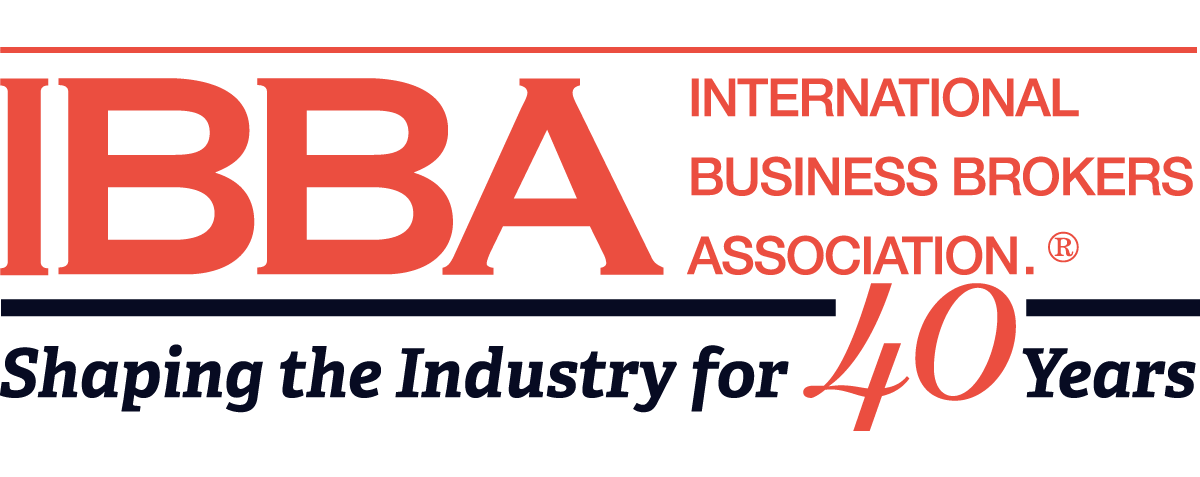IBBAinsights: Summer 2024
IN THIS ISSUE: “Embracing Our Legacy, Shaping Our Future” Letter from the 2024 IBBA Chair. Plus, Insights on Finding Success, Overcoming Blindspots, the Latest Legislative Update, and more!
WARREN BURKHOLDER, IBBA CHAIR

An over-the-top performance was experienced at the 2018 IBBA Annual Conference in New Orleans! From the opening reception parade with the Second Line Band, until the last Educational Course on Monday, the enthusiasm and energy of the participants was wide spread. The 2018 Conference saw the largest number of members in attendance within the last decade! The feedback and responses from almost all in attendance was outstanding. This reflects the hard work of the staff and the volunteers that worked tirelessly to bring all of the conference components together so effectively.
As we continue to grow, we’ve seen IBBA membership increase by over 20% within the past year. This has been driven not only by new members joining the IBBA, but also higher retention rates with existing IBBA members. The improvements in the value proposition of IBBA membership has been an important part of what has driven membership growth.
Surging forward, even more growth continues with our number of Certified Business Intermediaries (CBIs). We are close to the 500 mark and will soon set a new, all time high. One of the requirements for the CBI designation, Educational Recasting and Pricing Summits have been frequently sold out due to high demand. In response, the IBBA has announced 4 Educational Summits scheduled through the end of the year in Ottawa, Fort Lauderdale, Cleveland and San Jose. These Educational Summit opportunities have never been more available to gain your CBI designation. Thank you to IBBA Canada, the Business Brokers of Florida and the California Association of Business Brokers for partnering with us to make these opportunities happen. For details about the Summits, click here.
Looking ahead, growth in the coming year is set to bring new educational opportunities to both ends of the education spectrum. New course development for individuals looking to learn more about the IBBA, as well as a focus toward entry level broker basics, will premier shortly. In addition, development is under way to bring more advanced education targeting our experienced IBBA members to help them get to the next level.
Finally, our 2019 Annual IBBA Conference is already in the planning stages and is set for Orlando, Florida on May 10-11. Mark your calendars and join us as we look forward to continued growth in membership, CBI’s and education!
Best regards,
Warren Burkholder, CBI, Fellow of the IBBA, MCBA, ASA, ABAR, CVA
MARK WOODLING, VP UNITED SCS
 So where’s the value and how can I get paid a referral?
So where’s the value and how can I get paid a referral?
Every week we hear another Business Owner tell us, “The business is not profitable now, but the valuation is in the future of the business.” Cue the broken record.
If I had a dollar for every time I heard that I wouldn’t be rich, but at least I could get paid for my time. As brokers, our time is valuable and extremely limited. So when you invest 30 minutes on the phone and it’s obvious that you are turning down the deal, how do you flip that failing business conversation around into cash? Easy! If there are assets, why not refer the deal to a company that has the ability to market and sell any size deal? You need a network that can say “YES, I can sell that!” to every failing business…any size, in any location around the United States, whether including real estate, equipment, and/or business intangibles.
Let’s dive into the questions to ask.
How do I find the right person to refer to with the right expertise? First off, you need a reliable network with a variety of expertise across the board. Selling specialty equipment or real estate types require experience in very niche industries, so this is a difficult task to find the right sales service. Second, you need a national network of experts, not just within your state. Your Sellers are doing more business around the country than ever before, so it’s more common to be working across state lines.
Do I hand over my relationship? Yes and no. The referral can be managed many different ways, you can either a) hand over everything and just wait for the sale/check in the mail or b) you can help manage the sale by participating in the calls, etc. I always say that your Sellers should be treated like your Mother in Law at LEAST. You have a strong relationship, BUT your opinions are not always aligned. Just like the In Laws, the Sellers are ALWAYS RIGHT and that’s a tough pill to swallow. But to keep all parties in line, you need strong communication and agreements up front to ensure the relationship is clear. Especially regarding any future business opportunities, you will want to see each deal first before referring out again.
How do you sell the property? First of all, the business doesn’t have supporting financials and that is why you turned the deal away. So now you need a Plan B. This is when you turn to your network that provides a variety of services. Those are 1) Real Estate Services, 2) Valuation/Appraiser Services and 3) Auctioneer Services. This is the trifecta of services needed to value, market and sell a property based on the property type and/or the Seller’s needs. The two options are to traditionally sell the assets or offer the property in an auction for a quicker and more efficient sale process. The Seller’s needs are most important and if they say they need the cash in 30-60 days, then an auction liquidation is the way to go in order to realize market value with the correct marketing.
What seller situations would call for an asset sale? Maybe business has slowed as they prepare for retirement, the market has declined or they can’t make their payments. These are difficult situations to face even as a broker and unfortunately, there isn’t time to get the business turned around. It’s time to take action and call on a group that can move in quickly to assist.
How do I get paid? Get paid for the referral. Asset sales such as equipment, inventory, and intangibles can be sold and paid a straight referral. Real estate referrals require a real estate license. But there is more than money on the line, especially this is a top client as it builds goodwill and repeats business.
Having a large network of experienced subject matter experts is key to making that referral fee. We have a single point of contact that can connect you with the right agent/auctioneer, or a specialty team to assist you as a broker or auctioneer. Learn more about us below.
Mark Woodling is the Vice President of United SCS and is an experienced real estate agent and auctioneer. He assists brokers, agents and auctioneers around the country to sell unique assets that need a customized marketing strategy. He has marketed properties around the country and sold over $8 billion in real estate assets for banks, institutions and individuals. He can be reached at 214-945-4556 or [email protected]. Or go to www.united-scs.com.
United Real Estate Group, an international real estate company with a 90 year track record and over $100 billion in properties sold, is uniquely positioned to market your investment, operating or lifestyle property. United Strategic Client Services is a carefully assembled team of experts, comprised of subject matter experts, brokers and auctioneers who have deep experience in a wide range of unique properties and businesses around the world. We leverage our international network of 7,000 local brokers, agents and auctioneers to offer local expertise and assistance to successfully execute the sale. We collaborate with the best resources in our network to create your team. This includes agents from our United Real Estate offices, which can be found in metropolitan markets, as well as our United Country offices which are found in rural America. Through our network, we have developed sophisticated and innovative marketing techniques, resulting in a thorough sales process by incorporating in-depth local, regional, national and world-wide marketing campaigns.
2018 IBBA Mid-Year Report
Wednesday, June 13, 2018
12 pm EDT
Are you interested in learning more about what the IBBA has in store for the future and how the association is performing this year? Join IBBA Chair, Warren Burkholder, and Executive Director, Kylene Golubski, as they review and discuss the IBBA’s strategic vision, goals, and performance. Learn about how far we’ve come and what lies ahead in 2018! We welcome all those in the profession to attend and learn where the IBBA is going in the year ahead, and beyond!
MICHAEL FEKKES, CBI, M&AMI, CEPA; FELLOW OF THE IBBA
 The amount of information available on the web is mind boggling. The internet has become a great resource to obtain information on virtually any conceivable topic. Unfortunately, not all data is accurate and in some cases, potentially damaging.
The amount of information available on the web is mind boggling. The internet has become a great resource to obtain information on virtually any conceivable topic. Unfortunately, not all data is accurate and in some cases, potentially damaging.
With all of the information available on the web, related tools, and huge advancements, the need for an expert is required – still – in a variety of key situations. Legal, medical, taxation, and yes business valuation and sales. We can dance around the edges and become more informed based upon the information available online, but to obtain facts for critical and unique issues, there are professionals who have spent their life becoming an expert.
The M&A world is not without charlatans or individuals conflating the concepts found in a book or online as expertise in an industry. A business owner who seeks to understand the value of their company, techniques to improve such value, or strategies to sell this closely held asset should consult an expert with established experience and credentials. While our society has morphed into the instant gratification world, valuing a closely held business on a 15-minute survey which promises to provide avenues to increase the value over time, is an action that cannot be supported by an experienced advisor. Business owners want facts from experts so they can make intelligent decisions. Initiating a relationship on a false, web-based “valuation score” is problematic for many reasons.
“A wise man has many counselors” -unattributed
Education, licenses, and certifications matter. Having just returned from New Orleans, Louisiana where the International Business Brokers Association hosted their annual conference and the Merger & Acquisitions Source Association hosted their semi-annual conference I am reminded as to why I attend these events. The focus of these events is education. Many new members were completing their classes and testing for the Certified Business Intermediary (CBI) credential while other more senior practitioners were taking advanced courses on the valuation, structuring, financing, & marketing of main street and lower mid-market businesses. The material in many of these courses, workshops, panel discussions, and master-mind sessions was complex. Course #460 – “Quality of Earnings: From Measured Financials to Meaningful Analysis” taught by J. Larry Stevens of the Coles College M&A Academy was a four-hour course that solidified my opinion on the topic of this article.
Every business is different. Not some or most but every single one. Even franchises, which are not a focus of this article. It is impossible to have a business owner who has not received the benefit of M&A and business brokerage education and training to utilize a web-based tool or off the shelf software to accurately determine the value of their business. There are just too many adjustments that need to be made to the P&L and Balance Sheet that are either not captured in these online tools or the individual inputting the data is not aware of the industry protocol and items that need to be adjusted, added, or removed. Using the word “destructive” may sound hyperbolic. If the result is an inaccurate valuation deliverable, it causes harm as the business owner is left with an inaccurate sense of value.
If you want legal information there is plenty of information on the web providing suggestions, data and advice on all legal matters. If you have to appear in court, are going through a divorce, are suing or being sued, please get a lawyer skilled in the specific area of law you require. If you want medical information, the web is a wonderful place to get information on symptoms and medications, with sites like WebMD. If you are really sick, require surgery, or need a physical, please see a doctor. Professionals exist for a reason and they should be consulted often. In most cases, the value these professionals provide far exceed the fees involved. If you own a business, it is recommended that you use a CPA to ensure that the books are properly managed, that taxes are mitigated within IRS guidelines, and the returns are properly filed. When you want to explore the sale or valuation of your business, please seek professional representation from an expert.
Here are several examples of business valuation and transaction elements that need to be considered.
The reader needs to understand that these are just the basic questions. When performing a Quality of Earnings assessment or audit, more research is required. Even with these basic questions which are critical to valuing a business sale, very few of these elements are captured in an online assessment. When a business is being sold, these basic questions highlight the inadequacy of these web-based or “off the shelf” valuation tools. I have experimented with many of these products over ten years and none have produced reliable and actionable data. Keep in mind, these are the basic questions prior to delving into the ‘Quality of Earnings’ universe that a sophisticated buyer will be exploring for upper main-street and lower mid-market businesses.
Education, credentials, licenses, and certifications are there for a reason. While I appreciate the entrepreneurial spirit of these folks who attempt to condense and monetize a web-based process that requires an experienced assessment for most of the data inputted into these interfaces, these systems are not able to provide enough accurate data to warrant their use. They do look pretty with all of the charts, graphics, and fancy colors. Ultimately, data is what matters and even minor errors create significant differences in value. Advanced practitioners understand the term ‘Quality of Earnings’ and all the considerations that need to be made when addressing a myriad of adjustments when converting Net Ordinary Income to either SDE (Seller’s Discretionary Earnings) or adjusted EBITDA (Earnings Before Interest, Taxes, Depreciation).
A business typically represents an owner’s single largest asset. In many cases, the culmination of their life’s work. The best advice is please consult an expert. The results from a quickie survey to determine your score is not even worth those fifteen minutes of your time. It is meaningless on the value the business will achieve if sold.
It has been our experience that online “tools” are often developed by individuals with little personal experience in valuing businesses. One might argue this is a result of experienced business valuators knowing no online tool is accurate enough to properly value a business.
The International Business Brokers Association and Mergers & Acquisition Source Association are education-based credentialing and certification organizations. These associations were initiated to promote the best education in the world for professionals to assist and guide business owners through the complex process of preparing a business for sale, determining the fair market value, assessing likely buyers & qualifying these candidates, working with professional advisors including CPAs, attorneys, and wealth managers, negotiating the IOI’s, LOI’s, & DPA’s, and assisting with the transition period. This is a complex process and it is only those highly educated and experienced professionals that remain successful. We talked earlier about the business being the life’s work of an owner. In the M&A world, regardless of whether main-street or lower mid-market, these intermediaries also have a life’s work of education, experience, and credentials.
Performing a real world, current, fair market valuation for a small business is just not something that can be replaced via software even as an assessment tool. Unfortunately, the online valuation tools on the marketplace are unable (or don’t even attempt to try) to reconcile all the adjustments necessary to accurately assess the worth of a business. Getting some or maybe even most things rights can still result in a significant variance in the output which results in the business owner having a distorted sense of reality. There are some owners in the marketplace who seek assistance in maximizing the value of their business and are interested in paying monthly fees to a professional advisor. Those practitioners who seek to add value in this area need to acquire the experience and industry credentials to provide such services versus relying on web based promulgated tools.
Michael Fekkes is a Senior Broker at ENLIGN Business Brokers in Nashville, TN. Michael is a Merger & Acquisitions Master Intermediary [M&AMI], Certified Business Intermediary [CBI], Chairman of the International Business Brokers Association [IBBA] – Communications Committee, as well as a former business owner who received a 2018 Fellow of the IBBA award. He can be reached at 910.691.2202 or [email protected]. –ENLIGN Business Brokers is a Professional Services Firm serving the Southeast that is headquartered in Raleigh, NC providing business intermediary services ranging from valuation and sale to exit & succession planning strategies.
Ottawa, ON Canada | June 19-22, 2018
Fort Lauderdale, FL | July 2018 *COMING SOON*
Cleveland, OH | September 9-11, 2018
San Jose, CA | December 5-7, 2018
REGISTER HERE
STEVE MARIANI, President and Founder, Diamond Financial Services (DFS), IBBA Affiliate Council Chair
 I’ve touched on this topic in the past but continue to see it pop up when including SBA financing in many of our transactions. You might also be aware of the SOP (Standard Operating Procedures) rule stating “The seller may not remain as an officer, director, stockholder or key employee of the business. If a short transitional period is needed, the small business may contract with the seller as a consultant for a period not to exceed 12 months including any extensions.” This seems straight forward but many times brings much bigger concerns depending on your buyer’s qualifications and the seller’s true intensions.
I’ve touched on this topic in the past but continue to see it pop up when including SBA financing in many of our transactions. You might also be aware of the SOP (Standard Operating Procedures) rule stating “The seller may not remain as an officer, director, stockholder or key employee of the business. If a short transitional period is needed, the small business may contract with the seller as a consultant for a period not to exceed 12 months including any extensions.” This seems straight forward but many times brings much bigger concerns depending on your buyer’s qualifications and the seller’s true intensions.
Here’s an example of what I’m referring to. In my area many businesses have outgrown their owners, or certainly their desire to handle the administrative burdens that their growing business has created. We see it all the time and the potential buyer recognizes this fact and instantly views this as an advantage or opportunity. Often the seller does not want to retire, but the passion he once had when starting and growing the business is gone because he doesn’t have the time to do what he loves and does best, creating great products or services and then selling them. He “just wants to go back to sales” is what I hear time and time again from potential buyers. Yet once the rule is explained to them, they cannot follow the logic included in the rule book because it doesn’t make business sense.
Although logic may not be the basis for much of the SBA rulebook, this is one I have researched in detail and today will share the reasoning behind it. It all boils down to keeping each transaction as “Arm’s length” to avoid an internal money infusion provided by SBA under the “acquisition guidelines”. They don’t want 2 partners using this product without an ownership change. The actual change of ownership rules states it must result in a 100% change of ownership. This is where it brings into question the separation of the buyer and seller. In theory (or their line of thinking) is that the owner could now sell to an employee or outside person but still remain in control of this business by creating a side agreement or partnership agreement that would allow the seller to continue operations utilizing the influx of capital. The SBA does provide other avenues for capital in this scenario but a change of ownership sometimes is less restrictive and could be much easier to secure. Expansion and growth capital many times is much more difficult and of a lesser amount and thus, is less attractive. A true change of ownership loan could be up to the full business value amount and typically is.
When a top level executive buyer is considering purchasing a larger size business, many times he will not become the salesperson or business developer moving forward, a position the current owner/seller may have been doing himself for years and truly enjoys. Now the concern becomes either replacing the salesman that has producing the majority of the business for the last few years or finding a way to keep him on for a period of time for a reasonable compensation. In these cases what we typically see is the frustration by the seller as he handles the sales, the office and all the admin duties that come with it. He never truly expected the company to grow to this point or maybe never understood what a company of this size takes to operate and again, just wants to enjoy his position as a sales person. The question becomes, is there any way possible to make this happen? To be honest, my standard answer is NO. I continue on to explain each of these rules and how an SBA lender will view the transaction during the underwriting process and if need be, secure the seller for the first 12 months as allowed by rule under a consulting agreement. After that, you’re on your own. What I can tell you is that in our 22 years of SBA acquisition financing we have never witnessed a lender discipline a buyer for continuing the relationship with the seller. We are not condoning this in any way, but we know it happens. I can also tell you that I don’t believe the SBA has post-closing police, but again, don’t quote me on this. What I can tell you from a meeting with an SBA higher up, this rule will not change.
In the end should or could a buyer employee the seller for longer than 12 months? Although I don’t think he should, he could and would only be breaking the rules of SBA and not any legal laws that I know of.
Again, we describe this because we are confronted with this situation frequently and our response is always the same. Here are the rules and we suggest you understand and follow them. The buyer’s response and actions may then be somewhat different, but at least everyone knows the rules.
In the end I must always believe everyone’s goal remain the same, success for our buyer.
Steve Mariani, President and Founder, Diamond Financial Services (DFS) Steve has been a small business owner since 1983, when he observed the many people needing assistance when securing business acquisition financing and did not know where to go to get help. Over the past 21 years Diamond Financial Services has been helping small business owners realize their dreams by funding over $1 Billion in loans during this timeframe. Steve is not only the IBBA Affiliate Council Chair, but also the CVBBA president elect and has been a valued CVBBA member for many years where he educates members through workshops at their annual conference. Steve has also been producing and presenting broker webinars and workshops for many IBBA annual conferences.
Congratulations to our 2018 IBBA Member Excellence Award Winners!
The International Business Brokers Association (IBBA) presented awards of excellence to forty business brokers from around the world on May 4. Winners were presented with their awards during the 3rd Annual Member Excellence Awards Gala at the IBBA’s annual conference in New Orleans.
Awards were given in the following seven categories: IBBA Outstanding Producer, IBBA Chairman’s Circle, IBBA Deal Maker, IBBA Top Global Producer, IBBA Top Deal Maker of the Year, IBBA Closing of the Year and IBBA Advocate of the Year.
READ THE FULL PRESS RELEASE
Congratulations to the Business Brokers that Just Achieved their CBI Designation!
Seventy-one business brokers from around the world have earned the prestigious Certified Business Intermediary (CBI) designation given out by the International Business Brokers Association (IBBA). CBI certification represents the gold standard in the business brokerage industry and is only granted to individuals who complete required course work, pass an extensive competency exam, and agree to uphold the IBBA’s Professional Standards and Code of Ethics.
READ THE FULL PRESS RELEASE
NUNZIO PRESTA, CEO OF BIZON

Whether you are a business broker or entrepreneur, selling a business or franchise is one of the most interesting and challenging experiences of your professional life and this is why our platform at BizOn is so loaded with tools to help inform both sides of the business transaction equation.
Selling your business or franchise isn’t something that happens overnight, but the sooner you prepare for the eventual sale, the better. Planning for an exit will help you increase the valuation of your business/franchise and will also help you prepare mentally and financially when transitioning.
According to a study by Securian-Financial Group, 60% of small business owners planning to leave their business in the next 10 years don’t have an exit strategy and aren’t working on one. This is surprising, considering that unprepared and unplanned exits usually take a hit on valuation.
The world of business acquisitions and franchising is complicated and ever changing, so it can be difficult to know where to start. Here are five easy steps that’ll help you get on the right track in order to prepare and create a valuable and sellable business:
By taking the time to properly plan and build a more sellable and valuable business or franchise, you can become more confident about your exit plan, as well as your future. The bottom line is that more and more people are starting to understand that when you work for someone else, they are implicitly accepting a limited upside and unlimited downside, and in the majority of the cases a “job” will never be fulfilling nor will it make them incredibly wealthy. At BizOn our tagline is simple – Become your own boss! Our aim is help supply the knowledge and skills to make this happen.
Nunzio Presta is an ex pro hockey player turned entrepreneur – a true Canadian, eh! He is also the Founder & CEO of BizON, an online marketplace with over 7,000 active users looking to buy, sell and grow businesses or franchises every day. Nunzio is equipped with a wealth of knowledge when it comes to identifying, building and funding businesses – in addition to being a thought leader on social selling, digital marketing, leadership & entrepreneurship through acquisition. He sits on the board of multiple startups and is part of Startup Canada’s Entrepreneur Success Advisory Council. Nunzio is a mentor to many entrepreneurs, small business and franchise owners, and is a regular contributor to Thrive Global, a digital resource for individuals and corporations.
[ezcol_1half]
Join the LinkedIn and Facebook IBBA Member Groups!
Use these tools to connect and communicate with your peers to share and receive insights from the business broker perspective!
[/ezcol_1half][ezcol_1half_end]
Business Reference Guide Online
Caplinked
BizMiner Industry Financial Reports
Aon E&O Insurance
Welcome to 120+ New Members that joined the IBBA since March 1, 2018!
[/ezcol_1half_end]
IN THIS ISSUE: “Embracing Our Legacy, Shaping Our Future” Letter from the 2024 IBBA Chair. Plus, Insights on Finding Success, Overcoming Blindspots, the Latest Legislative Update, and more!
Independence, OH May 21st, 2024 – IBBA, the world’s largest professional trade association for Business Brokers, today announced and recognized the recipients of its top performance awards at the 2024 Annual Conference in Louisville, Kentucky. “The cumulative transaction value of this year’s submitted deals was over $2 billion, which is an astounding number,” stated Kylene […]
Independence, OH – April 11, 2024 – The International Business Brokers Association® (IBBA) is pleased to announce the inaugural inductees to the IBBA Hall of Fame: Jim Afinowich | Lifetime Master CBI, M&AMI, Fellow of the IBBA Pino Bacinello | Lifetime Master CBI, M&AMI, CM&AP, Fellow of the IBBA Barry Berkowitz | Lifetime Master CBI, M&AMI, […]
Newsletter Sign UpGet the latest insights on buying and selling small businesses direct to your inbox.




